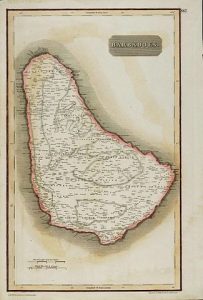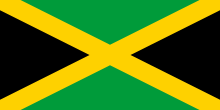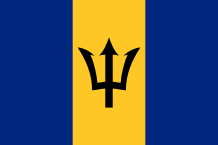You probably noticed that you can’t understand what Rihanna is singing in the chorus of her song “Work”. What most people don’t know, is that she isn’t singing in English. The language she is singing in is the creole language ‘Bajan’.

A creole language is a type of language that can arise under certain circumstances, where people who don’t have any language in common need to communicate. Bajan arose several hundred years ago among West African slaves who were transported to the Caribbean island of Barbados and bought by plantation owners. The slaves needed to communicate with each other, but since they came from many different places in Africa, they didn’t have one language in common. However, when people need to communicate, they find ways to communicate, and new languages have arisen among slaves in many colonies. Words from the Nigerian language Igbo, from the language Twi from Ghana, and from Fula that is spoken in Senegal (among other places) all bear witness to the diverse origins of the African population in Barbados. However, the majority of words in Bajan come from English, which was the language used by the plantation owners and thereby the only language that all the newly arrived slaves were exposed to daily. However, the new language that arose on the island differs from English in several ways. This is the language that Rihanna has heard growing up in Barbados.
Wer, wer, wer, wer, wer, weh
Countless bloggers and social media users have expressed their discontent with the fact that Rihanna speaks gibberish and mumbles in her song, to the extent that the lyrics are completely incomprehensible. The first thing they notice is that the word “work” is reduced to “wøh”. The same goes for the word “dirt” that becomes “der”, and “learn” that becomes something sounding like “ler”. In the ‘er’ sounds in these words the pronunciation is either rhotic or retroflex, meaning that the tip of the tongue is pointed slightly upwards towards the palate, giving the vowel and r-like sound.
Rihanna’s grammar
Most people in Barbados speak Bajan at home. However, English is the language spoken in schools and heard and read in the media. As a result of this, most inhabitants of Barbados are fluent in both Bajan and English, and the two languages are intertwined in everyday speech. This doesn’t mean that the two languages are the same, but rather that people take creative advantage of the full spectrum of options they have available to express themselves linguistically. The same phenomenon is seen in minority and immigrant communities around the world where people are multilingual. These circumstances leave their mark on the lyrics of ‘Work’.
Let’s take a look at one sequence of the lyrics where her song is characteristically Bajan:
Work, work, work, work, work, work
He said me haffi
Work, work, work, work, work, work!
He see me do me
Dirt, dirt, dirt, dirt, dirt, dirt!
So me put in
Work, work, work, work, work, work
When you ah go
Learn, learn, learn, learn, learn
Me nuh care if him
Hurt, hurt, hurt, hurt, hurting
The language in the text differs from English in several ways. Words like ‘haffi’ that derive from the English ‘have to’ are found in several Caribbean creole languages. It is also noticeable that there is no distinction between “I”, “me”, and “my”, but that these are expressed with “me” in all cases. Here, a grammatical simplification has happened in relation to English, but it can’t be characterized as a grammatical error. Instead, we can characterize it as a difference between the grammatical systems in the two languages.
As previously mentioned, creole languages have arisen due to people’s need to quickly find a common language for communication. What is seen in these languages is that grammatical inflections are simplified, and irregularities are straightened out. As an example, this can be seen in the sentence “me nuh care if him hurt”, where “do not care” is reduced to “nuh care”.
However, it isn’t only a question of simplifications, but also a completely new grammar. In Bajan the verbs aren’t inflected to express tense. ‘Learn’ isn’t ‘learned’ in the past tense, it is always ‘learn’. Instead, different words are placed in front of the verb to specify when an event happens.
“You learn” could therefore also mean “you learned”. “You ah learn” would on the other hand be translated to “you are learning”, and “you don learn” means “you (usually) learn/you used to learn”. In the song we encounter the sentence “when you ah go learn”, which at first sight could resemble the English question “When are you going to learn?”. When “ah go” precedes a verb in Bajan, it expresses that the event will take place in the future.
Not everyone from the Caribbean is from Jamaica

Many of the bloggers mentioned earlier have noticed that Rihanna isn’t singing in English. Many of these have claimed that she instead is singing in Jamaican Patois. This Jamaican creole language is known from countless pieces of music, and several Jamaican traits can also be found in reggae songs in various languages, including Danish . However, Bajan differs from Jamaican, both grammatically speaking, and when it comes to pronunciation.

Just like many Caribbean singers, Rihanna has also borrowed words and phrases from other Caribbean languages in some of her earlier songs. In her breakthrough hit “Pon de replay”, she sings “all de gyal pon de dance floor”, which can be translated as “all the girls on the dance floor” In Bajan, “girl” wouldn’t be pronounced “gyal”, but more likely “ger”. I know that at least in the language Trini from the island of Trinidad it is pronounced “gyal”, but I can’t claim to know whether that is where Rihanna gets it from or not.
This post was translated from Danish by Hannah Fedder Williams.The Danish post is an edited version of an article previously published on the site Modkraft.dk.
Cover picture from Pixabay.
Yonatan Ungermann Goldshtein is a ph.d. student of linguistics and is interested in interaction between languages, language contact, and language development.








You have misspelled Patwah/Patwa. Patois is incorrect as that is a French word that defines my language as “gibberish”. It’s gibberish to non-Caribbeans.
In the Caribbean and African cultures there’s a general patwa that we speak and in general cases we can understand each other. It’s the dialect and accents that differ.
Thank you very much for translating and posting this post!